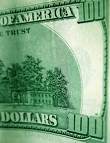Forex Benefits Over Futures
From Agricultural Products to Financial Instruments
 The origins of the modern futures market lies in the agriculture markets of the 19th century. Farmers started selling contracts to deliver agricultural products at a later date. This was done to anticipate market needs and stabilize supply and demand during off seasons.
The origins of the modern futures market lies in the agriculture markets of the 19th century. Farmers started selling contracts to deliver agricultural products at a later date. This was done to anticipate market needs and stabilize supply and demand during off seasons.
The current futures market has moved far beyond agricultural products. It is a worldwide market for all sorts of commodities, including manufactured goods, agricultural products, and financial instruments such as currencies and treasury bonds.
When the futures market is played by speculators, the actual goods are not important because there is no expectation of delivery. Rather, it is the contract itself that is traded, the value of which changes constantly throughout the day as expectations change regarding the value of the commodity itself.
Win or Lose
In every futures contract there is a buyer and a seller. The seller takes the short position and the buyer takes the long position. The futures contract specifies a buying price, a quantity and a delivery date.
 Speculators hope to profit by the daily fluctuations in the futures market by buying long (from the buyer) if they expect prices to rise, or by buying short (from the seller) if they expect prices to fall. Futures accounts are settled every day.
Speculators hope to profit by the daily fluctuations in the futures market by buying long (from the buyer) if they expect prices to rise, or by buying short (from the seller) if they expect prices to fall. Futures accounts are settled every day.
At the end of the contract period, the contract itself is settled. The final contract buyer can now take delivery of his truckload of whatevers. Of course, he may opt to just start the process all over again by writing up a contract to deliver his whatevers on a certain date at a certain price.
Forex Benefits
The foreign exchange market (Forex) has several advantages over the futures market.
- More Liquid
-
 Forex is an extremely liquid market. As the largest financial market in the world it dwarfs the futures market in daily exchanges. This means that Forex stop orders can be executed more easily and with less slippage. The Forex is open 24 hours a day, 5 days a week. Most futures exchanges are open 7 hours a day. This makes Forex more liquid and allows Forex traders to take advantage of trading opportunities as they arise rather than waiting for the market to open.
Forex is an extremely liquid market. As the largest financial market in the world it dwarfs the futures market in daily exchanges. This means that Forex stop orders can be executed more easily and with less slippage. The Forex is open 24 hours a day, 5 days a week. Most futures exchanges are open 7 hours a day. This makes Forex more liquid and allows Forex traders to take advantage of trading opportunities as they arise rather than waiting for the market to open.
- Commission-Free
-
 Forex transactions have no commissions. Brokers earn money by setting a spread -- the difference between what a currency can be bought at and what it can be sold at. In contrast, traders must pay a commission or brokerage fee for each futures transaction they enter into.
Forex transactions have no commissions. Brokers earn money by setting a spread -- the difference between what a currency can be bought at and what it can be sold at. In contrast, traders must pay a commission or brokerage fee for each futures transaction they enter into.
- Instant Transactions
-
 Because of the high volume of trading, Forex transactions are executed almost instantly. This minimizes slippage and increases price certainty. Brokers in the futures market often quote prices reflecting the last trade -- not necessarily the price of your transaction.
Because of the high volume of trading, Forex transactions are executed almost instantly. This minimizes slippage and increases price certainty. Brokers in the futures market often quote prices reflecting the last trade -- not necessarily the price of your transaction.
- Safeguards
- Final prices in futures are always a little uncertain because of market gap and slippage. The Forex is less risky because of built-in safeguards in the trading system.